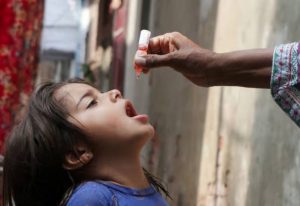The novel coronavirus is known to cause the covid-19 disease has infected 325,000 people in Pakistan and caused up to 6,700 deaths. The disease’s most predominant presentation is a respiratory illness consequently it can be confused with the common cold, the flu, and seasonal allergies. As we approach the Fall Season and the temperatures drop we are headed towards a period of utter confusion where every sneeze, cough, or sniffle will have us thinking ‘Is this the flu? Is this a common cold? Is it a seasonal allergy?’ or dare I say it; ‘Is it the coronavirus?’.
While the anxiety that comes from having these symptoms is justified, jumping the gun and self-diagnosing ourselves will not help anyone. The best course of action would be to reach out to your family physician if you experience any symptoms and then follow the protocol advised by him after a clinical diagnosis.
The chart below gives an idea of what symptoms to expect in relation to each disease and how you can tell apart the diseases based on their symptoms, however, a visit with the physician is a must, no self-diagnosing, and no self-medication!

Sources: CDC, NIH, Mayo Clinic.
Symptoms that are unique to Covid-19, by contrast, include a new onset or recently developed loss of taste and smell, which has been experienced by 85% of infected people as reported by a recent study. The study also cited that 50% of the people who had Covid-19 experienced difficulty breathing as well. So if anyone in your family experiences these unique symptoms, it’s time to call your family physician.
Who are at a high risk of getting the Covid-19?
· Are over the age of 65
· Have cancer
· Have hypertension
· Have lung disease
· Have diabetes
· Have heart disease
· Have a condition which decreases their immunity
· Are taking medicines which decreases their immunity
What you can do to protect yourself against the virus?
· Wear a face mask
· Practice social distancing
· Wash your hands often with soap and water for 20 seconds. Alternatively, use a hand sanitiser with a high alcohol content (more than 60%).
· Avoid touching your eyes, nose, and mouth with unwashed hands.
· Stay home if you are sick.
· Cover your mouth while coughing or sneezing.
· Disinfect high contact surfaces before using them.
While we wait for a vaccine to arrive or herd immunity to be reached, the best way to live our lives would be to adjust to the ‘new normal’ and practice the prevention protocol.














